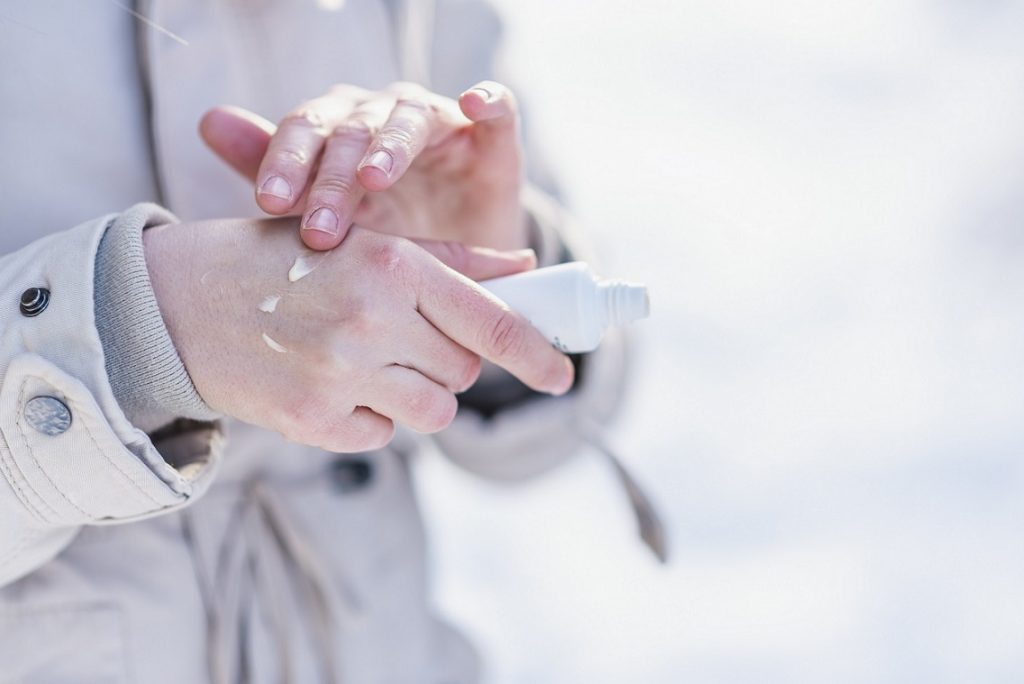Our esteemed dermatologist, Dr. Benjamin Barankin, joins other reputable experts in dermatology to offer valuable advice on winter skin care. Read below to learn more.

As temperatures dip, check your products for these skin-saving ingredients
Cold air outside, hot air inside, and dry air everywhere can disrupt the skin’s barrier in the winter. And that can mean dry, itchy skin for everyone, but especially for those who deal with conditions like eczema and psoriasis.
Here are some products that can help your skin look and feel its best throughout the colder months. Some of the ingredients are tried-and-true skin superstars, while others are relatively new additions to the winter skin care arsenal.
Facial cleanser
“You want to make sure your cleanser puts moisture into the skin, rather than taking it out,” says Joyce Davis, MD, FAAD, a board-certified dermatologist practicing in New York City.
Look for: Products that specifically say “gentle” and “moisturizing” on the label. Avoid products that contain alcohol, as these can dry your skin.
Body cleanser
Your skin below your neck needs just as much care as your face.
Look for: Cleansers—liquid, gel, or mousse—the creamier the better. “Also look for products labeled ‘fragrance-free,'” advises Benjamin Barankin, MD, FAAD, a board-certified dermatologist in Toronto.
For patients with eczema, Dr. Davis says products that contain petrolatum, shea butter, and silicones are good choices.
Facial moisturizer
Lighter lotions may not be enough to protect your skin from the elements in colder, drier climates.
Look for: Creams, oils, or balms. “Hyaluronic acid is popular lately,” says Robert Anolik, MD, FAAD, a board-certified dermatologist in private practice in New York City. This ingredient is moisturizing rather than exfoliating, like other acids such as glycolic or salicylic acid. “Jojoba oil is another good hydrating ingredient. Notably, some lactic acid moisturizers are able to walk the fine line of exfoliating dry, flaky skin while helping to maintain skin hydration.”
Body moisturizer
Moisturizing your body while your skin is still damp after a shower or bath is an effective way to keep skin hydrated. This is because moisturizer traps existing moisture in skin. Why not use the same moisturizer on your face and body? Facial skin is thinner and more sensitive, so many face moisturizers are designed to be a bit thinner and less likely to cause acne. They may also have more expensive anti-aging ingredients added to them. Keep in mind that more expensive skin care products are not necessarily more effective.
Look for: Ointments and creams that you squeeze from a tube or scoop from a tub, as opposed to ones you pump from a bottle, as thicker formulations typically pack more moisture. Hyaluronic acid is recommended, because it works as well for the body as it does for the face. “Using hyaluronic acid in body products is new,” says Dr. Davis. “Hyaluronic acid absorbs 1,000 times its weight in water, but until recently it was primarily used in products for the face.” Other ingredients that work well for dry skin are glycerin, lanolin, mineral oil, petrolatum, and shea butter.
Rejuvenating products
Many dermatologists recommend minimizing the use of products containing anti-aging ingredients such as glycolic acid, salicylic acid, or retinol in winter. “You can use them less often, or at a lower concentration,” says Dr. Barankin.
Look for: Products or brands you like with a lower concentration of harsh ingredients. “If you use prescription retinoids regularly, but find them too drying in the winter, you can consider over-the-counter retinols before going back to your prescription in the spring,” suggests Dr. Anolik.
Sunscreen
Yes, you should be wearing sunscreen year-round on areas not covered by clothing, like the face, neck, ears, and hands.
Look for: More moisturizing sunscreen products, such as creams instead of lotions or sprays. “Or use a moisturizer and then apply sunscreen on top,” recommends Dr. Barankin. Your sunscreen should offer broad-spectrum protection, water resistance, and have an SPF of at least 30. You can also protect your skin from the sun in the winter by seeking shade and donning smart accessories, such as gloves and sunglasses with UV protection.
